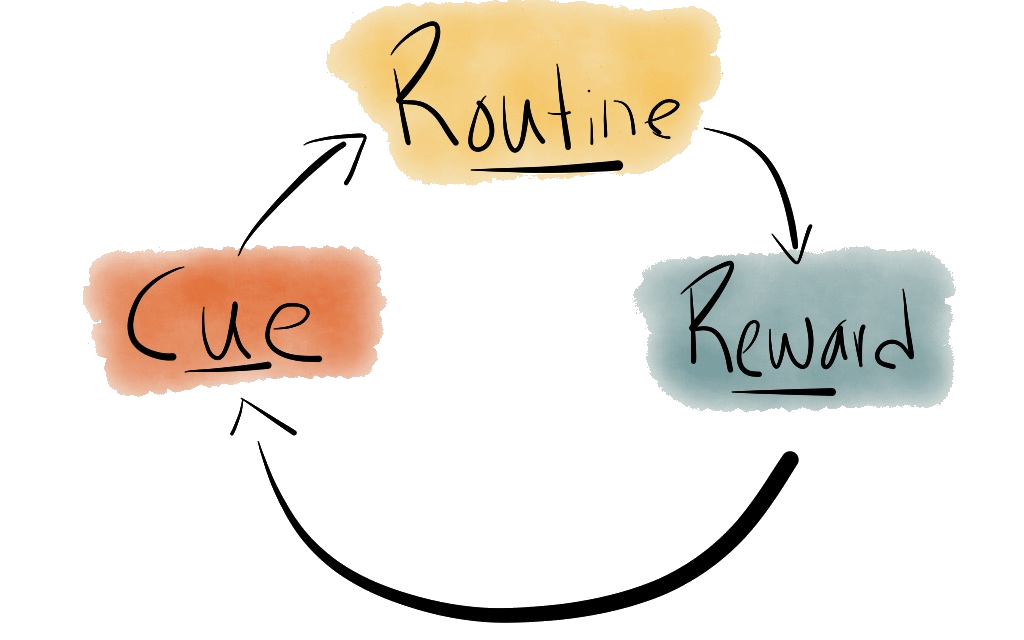Abby Reese ’25, Staff Writer
I have always noticed how, given the choice, people will usually choose what is familiar. Humans are creatures of habit, whether we like to admit it or not. What inspired me to write this article is this: Have you ever noticed how everyone in your class will sit in the same seat they sat in on the first day without question? Even if there is no seating chart, we always choose the same seat. With the freedom to choose any seat for the entire length of the course, it baffles me that even I will sit in the same spot. Another example being finding ourselves falling into the same after-work/school ritual that we try so hard to break out of. Even when you want to change your routine, it is hard to do so. When given the choice, we choose habit.
But why?
Habit is more influential than we think. Our brains are constantly attempting to make less work for themselves; shortcuts if you will. The brain wants to save effort, and one of the easiest and most efficient ways to do so is by forming a habit. That is why these ritualistic and routinely habitual actions are so hard to break out of. I also believe, especially in the seating scenario mentioned above, that habits form from group mentality as well. Typically, everyone will sit in the same spot every class. I remember these habits forming even from the time I was in grade school. This is not always the case though. Perhaps, maybe someone is the outlier and always switches their seat whenever given the opportunity. There is nothing wrong with wanting to break the mold. However, going against group mentality and a “norm” takes particular mental strength. The familiarity of habit breeds endorphins, feeding pleasure every time it’s repeated. Your brain thanks you for using its shortcut. And, since our brains reward us for creating these mental shortcuts for ourselves, we often find it difficult to break habits and easy to repeat them; hence creating the habit loop pictured above.
See, habits grow into routines, which explains why some habits (especially bad ones) are so difficult to break. For example, let’s look at one of the most common bad habits: nail-biting. Even though it is classified as a “bad habit”, there are other things that trigger nail-biting. Rather than the brain wanting to form a shortcut, anxiety or boredom may trigger the habit. In fact, many habits (good and bad) form this way, explaining why they are so hard to break. Habits, sometimes, are distractions. To break the routine, try journaling or finding a healthier distraction such as reading or baking!
The habit-forming nature of humans is truly fascinating to observe every day. As for myself, I will continue to sit in the same spot every class. I like routine, but that does not mean I will not condemn those who choose change. If this sounds like you: you and your habit-less-ness truly impress me.
Be that change!





